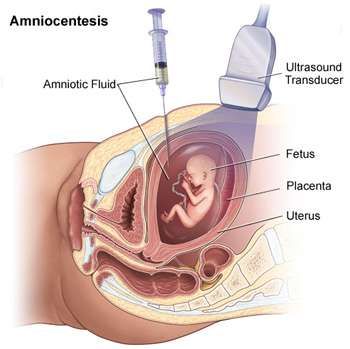Amniocentesis
Find your care
Maternal fetal specialists provide advanced care and support to you and your baby. Call 310-794-7274 to connect with our high-risk pregnancy experts.
What is an amniocentesis?

An amniocentesis is a procedure used to obtain a small sample of the amniotic fluid that surrounds the fetus to diagnose chromosomal disorders and open neural tube defects (ONTDs) such as spina bifida. Testing is available for other genetic defects and disorders depending on the family history and availability of laboratory testing at the time of the procedure. An amniocentesis is generally offered to women between the 15th and 20th weeks of pregnancy who are at increased risk for chromosome abnormalities, such as women who are over age 35 years of age at delivery, or those who have had an abnormal maternal serum screening test, indicating an increased risk for a chromosomal abnormality or neural tube defect.
Maternal and Fetal Testing
The vast majority of women have healthy pregnancies and their babies are born without difficulties. However, women with high-risk pregnancies often need a close watch for potential problems or complications. Fortunately, there are many tests and procedures to monitor the health of both mother and baby. Many of these pose little or no risk and can provide tremendous amounts of information to doctors, midwives, and expectant parents. Some types of testing and procedures, however, do carry some risks to mother, baby, or both.